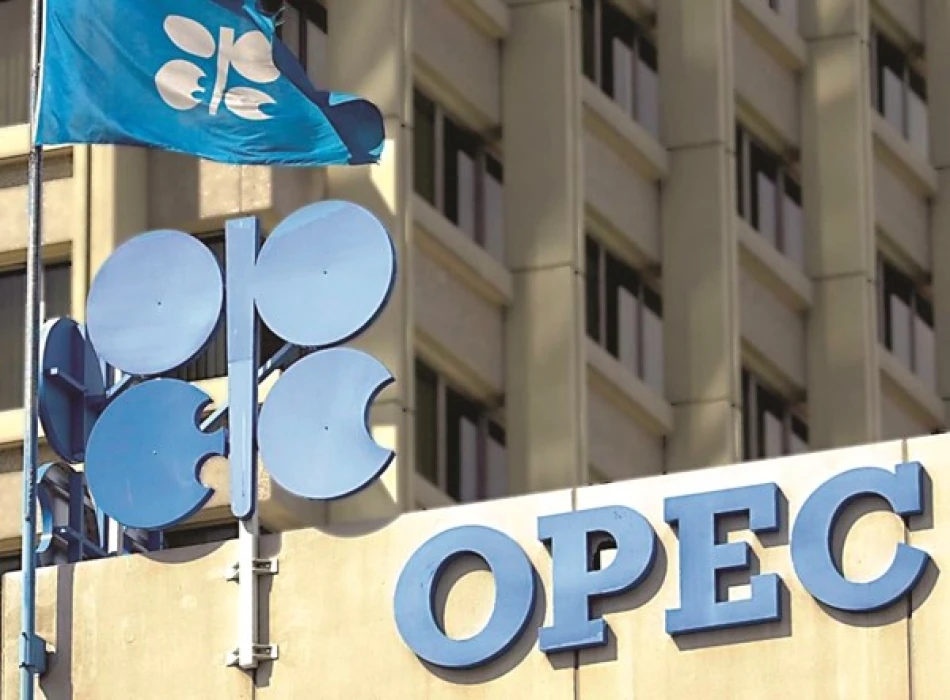
Oefied Launches Initiative to Enhance Trade Resilience in Partner Countries
OPEC Fund Launches $2 Billion Trade Resilience Initiative to Shield Vulnerable Economies
The OPEC Fund for International Development (OFID) has unveiled a comprehensive trade facilitation program designed to strengthen economic resilience across partner nations, with Arab donors committing $2 billion over five years to fund 650 projects spanning energy, water, transport, and digital infrastructure across more than 90 countries.
Strategic Response to Global Economic Fragility
The Vienna-based fund's new initiative directly addresses mounting concerns over supply chain vulnerabilities and liquidity constraints that have plagued developing economies since the COVID-19 pandemic and subsequent geopolitical tensions. By facilitating access to essential imports and bridging liquidity gaps, OFID aims to insulate partner countries from external economic shocks that have repeatedly destabilized emerging markets.
This move reflects a broader recognition among multilateral development institutions that traditional project financing alone cannot address the interconnected challenges facing developing economies. The emphasis on trade resilience signals a shift toward more adaptive, crisis-responsive development strategies.
Massive Infrastructure Investment Pipeline
Sector Diversification Strategy
The $2 billion commitment emerging from the Arab Coordination Group's annual meeting represents one of the most substantial multilateral development pledges in recent years. The funding will target four critical infrastructure pillars: energy systems, water resources, transportation networks, and digital connectivity—sectors that form the backbone of modern economic resilience.
This diversified approach mirrors successful infrastructure strategies employed by China's Belt and Road Initiative and the European Union's Global Gateway program, though OFID's focus on immediate trade facilitation distinguishes it from longer-term connectivity projects.
Geographic Scope and Impact
With projects planned across more than 90 countries, the initiative positions OFID as a major player in South-South development cooperation. The fund's emphasis on supporting economies with weaker structural foundations suggests prioritization of least developed countries and small island developing states—nations often overlooked by commercial investors but critical for global economic stability.
Market and Investor Implications
For international investors and development finance institutions, OFID's initiative represents both opportunity and competition. The substantial funding commitment may crowd in private sector investment by de-risking infrastructure projects in frontier markets, while simultaneously establishing OFID as a formidable competitor to Western-led development banks.
The focus on digital infrastructure particularly signals recognition that technological connectivity has become as crucial as physical infrastructure for economic resilience. This aligns with global trends toward digitalization of trade finance and supply chain management.
Geopolitical Positioning in Development Finance
The timing and scale of this announcement reflect broader shifts in global development architecture. As traditional donors face fiscal constraints and political pressures, oil-rich OPEC nations are leveraging their financial resources to expand influence in developing markets. This strategy parallels the UAE's emergence as a major development finance hub and Saudi Arabia's increasing prominence in multilateral lending.
The initiative also positions OPEC countries as responsible stakeholders in global economic stability, potentially countering criticism of oil producers' environmental impact while building diplomatic goodwill across the developing world.
Long-term Economic Transformation
Beyond immediate crisis response, the five-year timeline suggests OFID envisions fundamental restructuring of how vulnerable economies engage with global markets. By simultaneously addressing infrastructure gaps and trade facilitation, the program could enable partner countries to move up value chains and reduce dependence on commodity exports—a transformation that has eluded many developing nations despite decades of traditional development assistance.
Success will likely depend on coordination with existing multilateral frameworks and the fund's ability to maintain political neutrality while navigating increasingly complex geopolitical tensions that have fragmented global trade relationships.
Most Viewed News

 Layla Al Mansoori
Layla Al Mansoori






